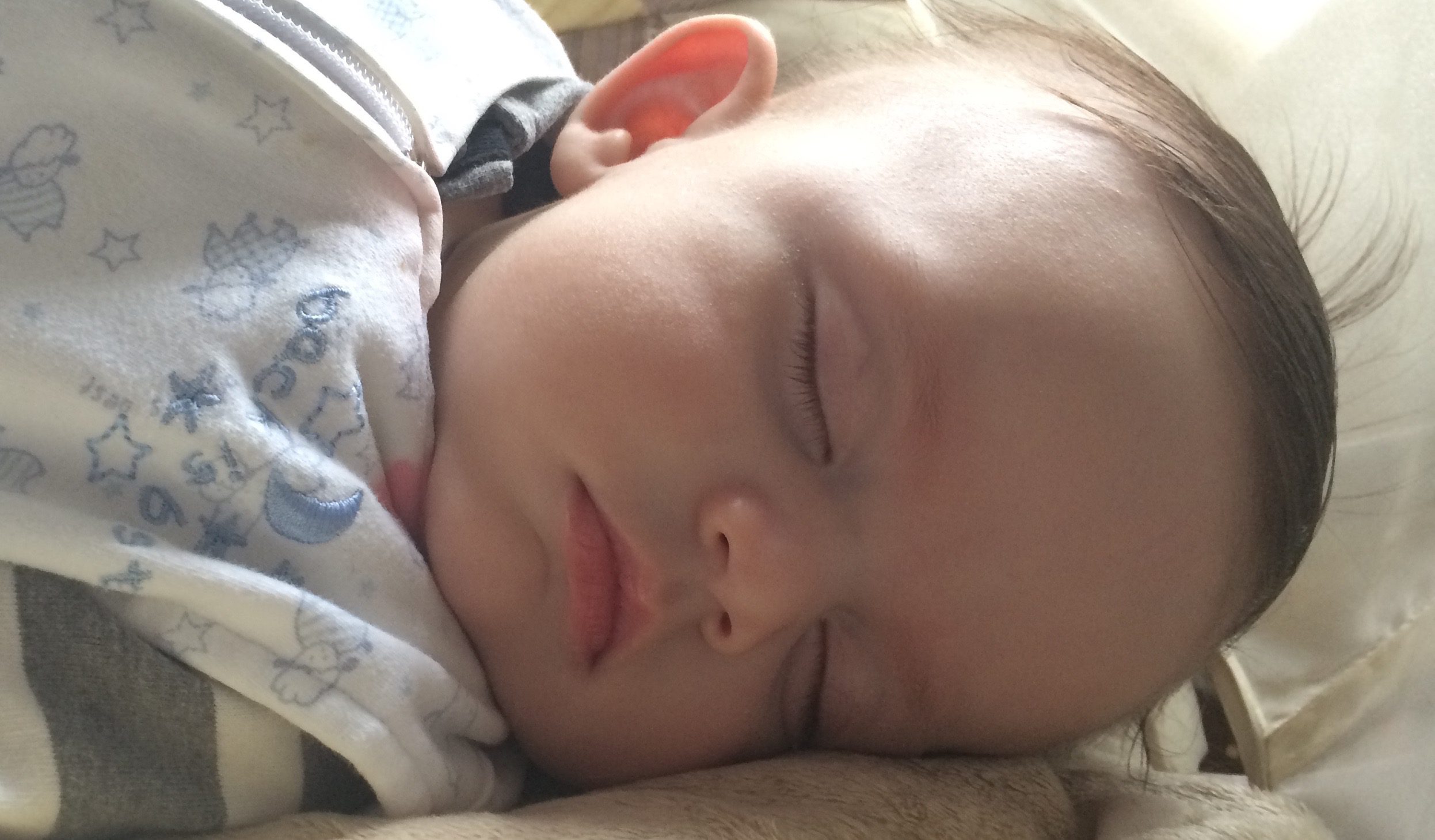As a parent and pediatrician, I know that sleep is a valued commodity. Hopefully, the following advice will make your parental road less bumpy.
The earlier you start the process of training, the better, but you can attempt this too early and become very frustrated. In the first 2-3 months of life, an infant simply does not have the mental capacity to ‘train’ because their memories are not developed enough to remember behaviors from one day to the next. In fact, it is for just this same reason, that there is no such thing as spoiling your baby in the first few months.
By 3-4 months, however, that situation changes, and you need to be prepared to take advantage of your golden opportunity when it arises. Around this age, infants begin to develop the ability to remember and repeat. You will know you are at this stage in development when your baby cries to get your attention and stops and smiles immediately when you give it to him. By doing this, infants are directing your behavior by applying what they have previously learned. Similarly, they can learn to go to sleep without your assistance by implementing their newly acquired memory skills.
Sleep training can be done gradually or all at once, but by 5 months, it would be best to have it finished, or you are getting dangerously close to making both of your lives more difficult. It doesn’t take long, usually about 3 nights with 5-10 minutes of crying; you both will reap endless rewards for a small amount of discomfort. Please do not worry that your child will be emotionally scarred and never love you because you allowed her to cry to sleep.
Here is my step-wise approach to sleep training:
•At 3 months of age, begin to pay attention to signs that your child is getting ready to go to sleep. At the very last stages before sleep onset, try to put your baby down and walk away from the room for a few minutes. If the baby begins to cry very hard, go back in and soothe her. If the baby is not crying vigorously, but just moaning, do yourself a big favor and stay away; he is almost asleep.
•If this doesn’t work for you or you never mustered up the courage to try it, by 4 months, you really need to be more purposeful in your training efforts. Before bed, feed your baby with the lights on and when he is beginning to slow his feeding, stop and put him to bed. Give him a kiss, turn off the lights and leave the room AND nearby area. Do not burp your infant before you put him to sleep at this age or he will fall asleep in your arms, just the thing you are trying to avoid. Also, if you hang around outside the room, the child can often sense that you are there and will continue to cry. Go do something else far away in the house, watch the clock, and do not go back for 15 minutes.
•If your child is still crying hard (not just whimpering) after 15 minutes, go in and pick her up, settle her down and retry. It is advisable not to have a baby monitor on when you are doing this because it echoes the noise for the baby and makes the volume of the crying worse for you.
•After you have successfully helped your infant to learn how to put herself to sleep at night, do the same for naps.
I would like to add one caveat at this point; many babies still need to feed in the night at this age. If your baby wakes up after several hours of good sleep, feed him and put him immediately back to bed. This should not interfere with your baby learning how to fall asleep.
At around 7-8 months of age, babies develop their adult sleep pattern and begin to wake up several times per night. If they don’t learn how to put themselves to sleep, they will need you to help them to go back down. Teaching your infant to go to sleep without you will save you and your child months and possibly years of poor sleep. It can be done later, but remember, as your child ages, the will and power to debate increase. You will have a much bigger job on your hands. Remember, good sleep is even more important for your baby than it is for you.
Stay tuned for the next blog, in several months, suggesting methods to correct poor sleep habits if you failed to pay attention to the above advice.
Written by: Virginia DePaul, MD

